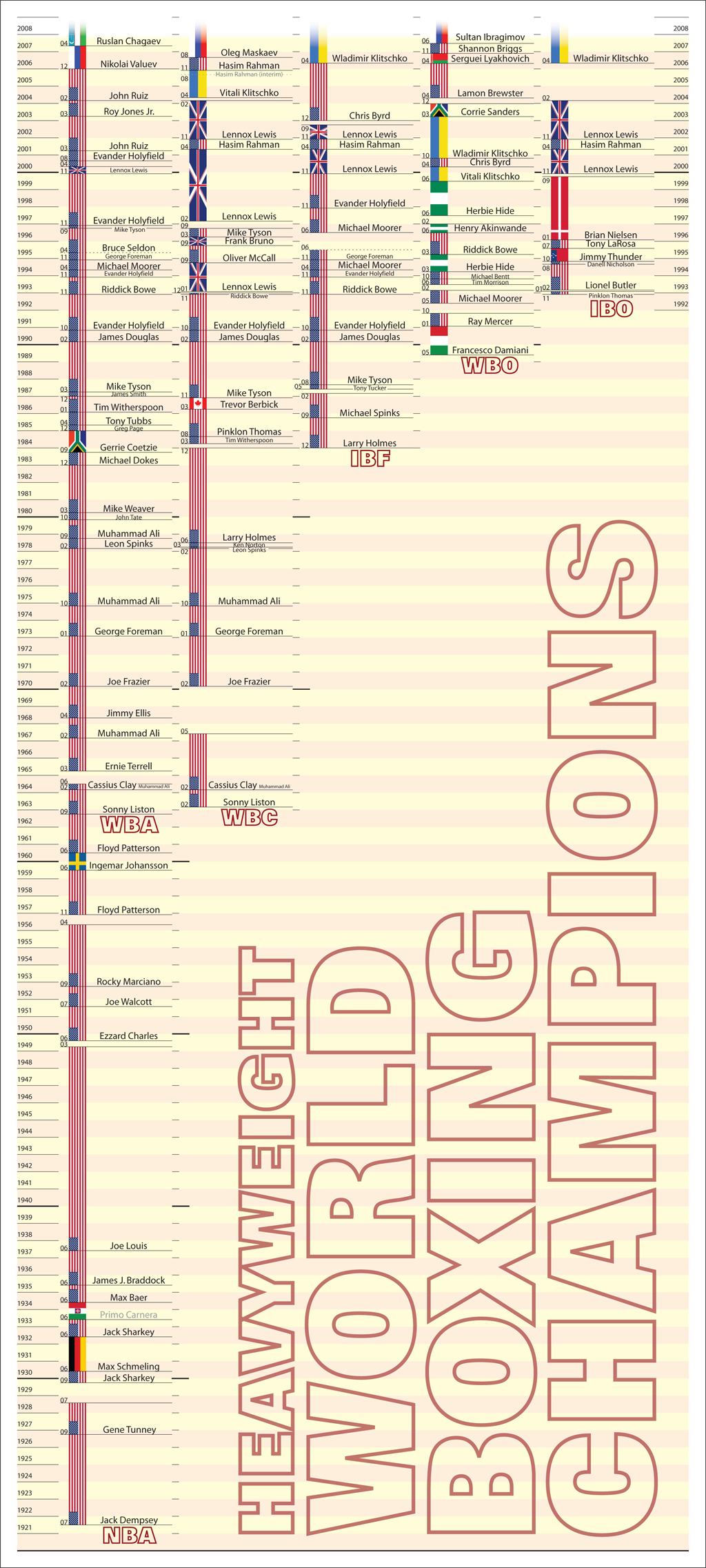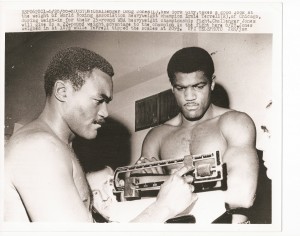Tag Archives: boxing history

Fight of the Year and the Bogus Controversy
 GUEST POST for dmboxing.com
GUEST POST for dmboxing.com
by Adam Pollack
The Lamont Peterson – Amir Khan fight has to be considered fight of the year 다운로드. Wonderful intense battle by two young elite prime warriors giving it their all. Some brutal blows were landed by both in 12 rounds of excellent high level combat 다운로드. The speed, footwork, counters, body shots, uppercuts, blazing combinations, were all just wonderful. Kudos to both for showing us what a true championship fight is all about 안녕하세요 다운로드.
But what is all this talk of controversy? I saw no controversial fight. I saw no home cooking. Stop trying to make every big boxing fight out to be controversial or a fix 다운로드. Stop trying to react emotionally, but instead look at matters in a fair and objective manner. It isn’t good for the sport to cast aspersions on that referee, nor are the criticisms of his point deductions fair 다운로드. I respectfully disagree with HBO and those who say the referee was unfair.
First of all, neither knockdown of Peterson in the 1st round was a knockdown 현정아 사랑해 다운로드. The first was correctly called a slip and a trip. The second was a trip and a push. Right there, for the referee to call that a knockdown shows that he had no bias against Khan 다운로드. In the heat of the moment, though, referees have to make snap judgments, and sometimes they get it wrong. Happens in the NBA, NFL and the like. Part of the sport 다운로드. But honestly, watching it live, without the benefit of instant replay, I was not sure whether or not it was knockdown. You have to go with the referee’s judgment at that point 다운로드.
As for the fouling, the referee was perfectly justified in taking points off of Khan. It is a violation of the rules to hold, to pull a man’s head down, and to push 중국 천둥 다운로드. Amir Khan did all three, and did all three of them incessantly, flagrantly, and despite repeated and consistent cautions throughout he bout by the referee to stop doing these things. You don’t need a referee to tell you to stop violating the rules or he’ll take points off. Every boxer is charged with knowledge of the rules, and every boxer knows that if you keep breaking the rules, you can get points taken off. The referee kept cautioning Khan, and yet he did not stop. If a referee does not take points off, then there is no reason for a fighter ever to obey the rules or listen to the cautions. No one whines and moans when a referee in the NFL calls a holding penalty, or illegal contact, etc. If you violate the rules, you get penalized. If you don’t want the penalty, don’t commit the penalty. And when there is a 15-yard penalty for roughing the passer, no one says the official gave the other team the game. They say that player should not have done what he did, that he should modify his behavior in the future lest he might potentially cost his team the game.
Continue reading Fight of the Year and the Bogus Controversy
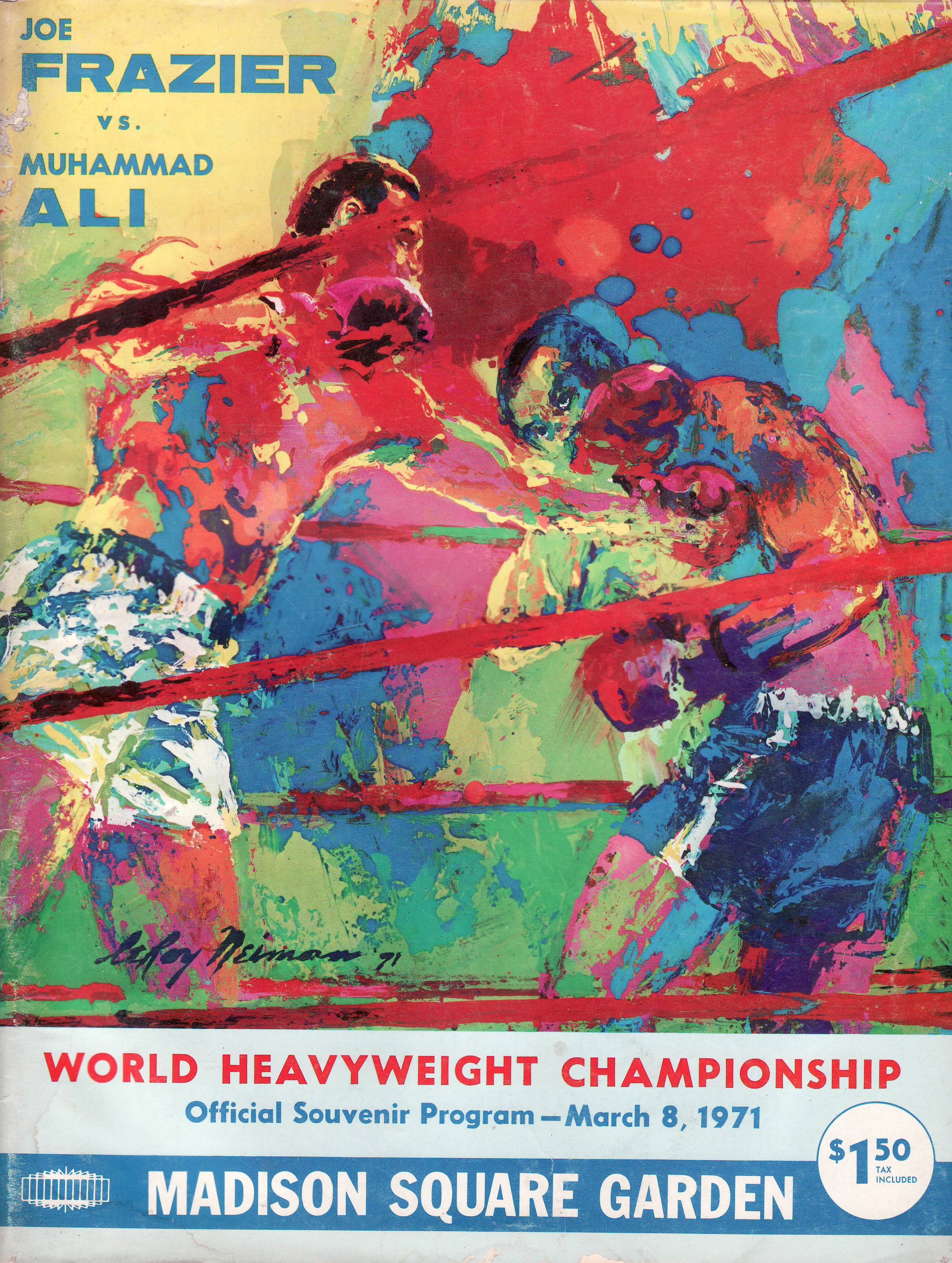
JOE FRAZIER / R.I.P.
By David Martinez / Boxing Historian
This past week boxing lost a great champion, Joe Frazier, who passed away after a brief battle with liver cancer at the age of 67.I will always remember Joe, and I am so blessed to have lived in his boxing era and to have witnessed his fights 다운로드. He was a relentless fighter and fought every round going forward behind a vicious left hook, with his opponents having to withstand constant pressure from Smokin’ Joe.If there were six fights, in my opinion, that absolutely stood out in his career they would have to be:
September 21, 1966 / vs 영화 크리스마스 캐롤 다운로드. Oscar Bonavena … Frazier down twice in second round to rally and win a hard fought 10 round decision.
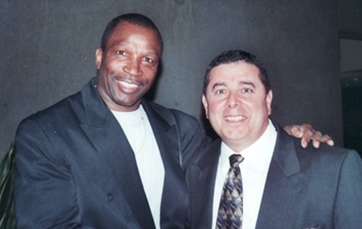
MIKE WEAVER : AN UNLIKELY CHAMPION
If I was to tell you there was once a heavyweight who lost his first professional fight by knockout 다운로드. Also this heavyweight would actually lose half of his first dozen fights. If I told you he would go on to win a piece of the heavyweight crown and be a major player in the division for well over a decade 다운로드. Would you believe me ?
Well this is a true Cinderella story. It is the career of former WBA heavyweight titleholder Mike “Hercules” Weaver 다운로드. Who in my opinion for nearly a five year period he was the second best heavyweight in the world.
Mike turned pro in 1972 and he was matched tough from the very beginning 다운로드. He lost his debut by knockout to future contender Howard “Kayo” Smith. He would then lose a five round decision to Smith in a rematch. Undefeated Billy Ryan would halt him in two rounds and four fights later unbeaten Larry Frazier would stop Mike in the second 다운로드. In 1974 Weaver would drop a ten round duke to the much bigger Rodney Bobick. Then Mike would be taken out in seven by the streaking Olympian prospect Duane Bobick 다운로드.
At this point the future of Mike Weaver looked very bleak. Over the next three and a half years though Weaver would put together a fairly impressive eight fight win streak 셋 셀테니 다운로드. Among his victims were Tony Doyle,Jody Ballard,Dwain Bonds and hard hitting Pedro Lovell. This put Mike into a fight with the talented Stan Ward for the California heavyweight title Download Food Additives Orbit. Ward outweighed Weaver by forty pounds and took a twelve round verdict. Seven months later Weaver was matched with Big Leroy Jones for the vacant North American Boxing Federation heavyweight title 프로젝트 좀 보이드 다운로드. Jones outweighed Mike by a whopping sixty six pounds ! Jones boxed his way to a twelve round decision over Weaver to capture the crown.
The determined Weaver with resurge his career by reeling off five straight wins in impressive fashion 용과같이 pc 다운로드. He took out the very dangerous Bernardo Mercado in five rounds. He then met Stan Ward in a rematch. The vacant United States Boxing Association heavyweight title was on the line. This time Mike took care of Ward in the ninth round and put himself in a position for a shot at the world’s heavyweight title.
Continue reading MIKE WEAVER : AN UNLIKELY CHAMPION

RING TRIVIA “answers” for August 2011
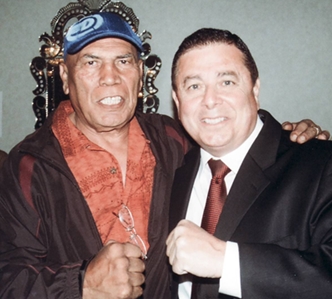
JOEY ORBILLO
 By Jim Amato / Senior Boxing Writer
By Jim Amato / Senior Boxing Writer
During the 60′s and the early 1970′s the state of California produced several world class heavyweights 다운로드. Talented and capable boxers like Eddie Machen, Jerry Quarry, Henry Clark, Thad Spencer, Bill McMurray, Mac Foster and Kenny Norton.
The city of Wilmington was represented by a rough and tough custumer by the name of Joey Orbillo 다운로드. Joey did not have a lot of fights in a career that lasted less then a decade. He did have a lot of memorable wars. He was a game and brawling crowd pleaser flo 음악. If it was blood and guts you wanted, Joey gave it to you.
He began his career in the mid-1960′s and was soon swapping leather with the likes of Henry Clark, Johnny Featherman and future world title challenger Manuel Ramos srt2smi. Joey scored a big victory in March of 1966 outscoring the highly regarded Tony Doyle.
The win over Doyle set the stage for Joey to invade the top layer of the heavyweight division 다운로드. He was matched with Eddie Machen. The veteran was among the best in the world.On June 23, 1966 he proved to be a little too much for Joey winning a hotly contested ten round split decision 셀럽 알람 다운로드.
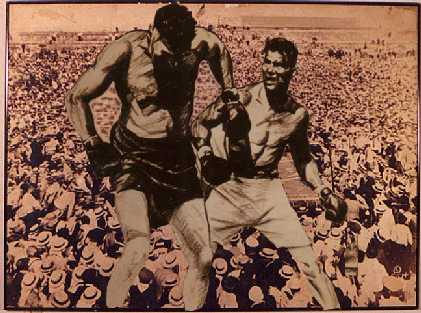
History of Modern Boxing: Heavy Weight Champions Since the NBA Began
Though the sport of boxing has historical roots as far back as the Roman Empire, modern boxing can arguably be dated to have begun with the Marquis of Queensbury rules. Additionally, heavyweight championships are widely accepted to have began with Jack Dempsey and the ‘National Boxing Association’ in 1921. From this point onward, the sport of boxing began to demand more skill from its athletes and a new format for fighting bouts was established. The old lean-back stances and bone blocks gave way to new styles, styles as dependent on defense as offense, styles that put emphasis on skill and speed, not just overwhelming power and brute force. With that said, let’s now take a look back at nearly a century of Heavyweight greats…
… and for those who may not have an image based browser, or just love it in plain text. Here is the whole breakdown with a bit more detail.
| July 4, 1919 | September 23, 1926 | Jack Dempsey | Universal | |
| September 23, 1926 | July 31, 1928 | Gene Tunney | Universal | |
| Tunney announced his retirement from professional boxing on July 31, 1928, relinquishing the championship. | ||||
| June 12, 1930 | January 7, 1931 | Max Schmeling | Universal | |
| Schmeling defeated Jack Sharkey to earn universal recognition as champion but was stripped of the NYSAC version of the title in 1931 for refusing a rematch with Sharkey 다운로드. The NYSAC title remained vacant until the two men eventually did fight in 1932. | ||||
| January 7, 1931 | June 21, 1932 | Max Schmeling | NBA & IBU | |
| June 21, 1932 | June 29, 1933 | Jack Sharkey | Universal | |
| June 29, 1933 | June 14, 1934 | Primo Carnera | Universal | |
| June 14, 1934 | June 13, 1935 | Max Baer | Universal | |
| In late 1934 the International Boxing Union ordered world champion Max Baer to defend his title against the reigning European champion, Pierre Charles of Belgium. When Baer instead opted to fight James J. Braddock they withdrew recognition of him as champion. The IBU matched Charles with the American heavyweight George Godfrey for their version of the title with the fight taking place in Brussels, Belgium on 2 October 1935. Godfrey won a fifteen round points decision but did not press any claim to the championship and was inactive for the next two years. The IBU then recognized Baer’s successor, James J. Braddock, as champion. | ||||
| June 13, 1935 | June 22, 1937 | James J. Braddock | Universal | |
| June 22, 1937 | March 1, 1949 | Joe Louis | Universal | |
| As of 2009, Louis still holds the record for holding the title longer than any man (11 years, 8 months and 8 days.) | ||||
| June 22, 1949 | September 27, 1950 | Ezzard Charles | NBA | |
| Charles won the vacant National Boxing Association championship in June 1949, but was not universally recognized as champion until June 1951 다운로드. | ||||
| June 6, 1950 | June 16, 1951 | Lee Savold | EBU | |
| On the retirement of Joe Louis in March 1949, the European Boxing Union announced that a fight in May 1949 between Lee Savold of the USA and British champion Bruce Woodcock would determine their version of the world heavyweight title. The NYSAC and the British Boxing Board of Control (BBBofC) also decided to recognize the winner of the fight as their champion but it was postponed for over a year due to injuries Woodcock had suffered in a car crash. The NYSAC decided instead to recognize the winner of the upcoming bout in September 1950 between Ezzard Charles and Joe Louis as their champion. Louis was returning to the ring after an absence of 27 months. When the fight for the EBU and BBBofC world heavyweight titles eventually took place in June 1950, Savold defeated Woodcock in four rounds. | ||||
| September 27, 1950 | June 16, 1951 | Ezzard Charles | NBA & NYSAC | |
| June 16, 1951 | July 18, 1951 | Ezzard Charles | Universal | |
| Following his defeat to Joe Louis in a non-title fight in June 1951, Lee Savold was no longer recognized as the world heavyweight champion by the EBU and the BBBofC, who both immediately transferred their recognition to Ezzard Charles. Charles therefore became universally recognized as world heavyweight champion. | ||||
| July 18, 1951 | September 23, 1952 | Jersey Joe Walcott | Universal | |
| September 23, 1952 | November 30, 1956 | Rocky Marciano | Universal | |
| Marciano announced his retirement from professional boxing, relinquishing the championship. | ||||
| November 30, 1956 | June 26, 1959 | Floyd Patterson | Universal | |
| June 26, 1959 | June 20, 1960 | Ingemar Johansson | Universal | |
| June 20, 1960 | September 25, 1962 | Floyd Patterson | Universal | |
| September 25, 1962 | February 25, 1964 | Sonny Liston | Universal | |
| February 25, 1964 | June 19, 1964 | Cassius Clay (Muhammad Ali) | Universal | |
| The WBA and the NYSAC withdrew their recognition of Clay (now known as Muhammad Ali) as champion for agreeing to an immediate rematch against Liston, a violation of the organization’s rules at the time 다운로드. The WBC and other organizations continued to recognize him. (See Ali versus Liston.) | ||||
| June 19, 1964 | February 6, 1967 | Cassius Clay (Muhammad Ali) | WBC | |
| March 5, 1965 | February 6, 1967 | Ernie Terrell | WBA & NYSAC | |
| February 6, 1967 | April 29, 1967 | Muhammad Ali | Universal | |
| The WBA, the NYSAC and several other US state boxing commissions withdrew recognition of Ali as champion for his refusal to be inducted into the United States Army subsequent to being drafted in early 1967. | ||||
| April 29, 1967 | March, 1969 | Muhammad Ali | WBC | |
| The WBC eventually followed the lead of the WBA and the NYSAC and stripped Ali of their title in March 1969. | ||||
| March 4, 1968 | February 16, 1970 | Joe Frazier | NYSAC | |
| April 28, 1968 | February 16, 1970 | Jimmy Ellis | WBA | |
| February 16, 1970 | January 22, 1973 | Joe Frazier | Universal | |
| Frazier and Ellis fought on February 16, 1970, at Madison Square Garden, New York. Frazier entered the ring as the holder of NYSAC version of the world title and Ellis held the WBA heavyweight title. The fight was also for the WBC title vacated by Muhammad Ali. Frazier defeated Ellis and was universally recognized as champion. He cemented his reputation upon defeating Muhammad Ali on March 8, 1971. | ||||
| January 22, 1973 | October 30, 1974 | George Foreman | Universal | |
| October 30, 1974 | February 15, 1978 | Muhammad Ali | Universal | |
| February 15, 1978 | March 18, 19783 | Leon Spinks | Universal | |
| March 18, 1978 | September 15, 1978 | Leon Spinks | WBA | |
| March 18, 1978 | June 9, 1978 | Ken Norton | WBC | |
| Spinks was stripped of his world title by the WBC for refusing to defend his title against their #1 ranked contender, Ken Norton 파이널 판타지 13 다운로드. Spinks instead agreed to fight a return bout against Ali for the WBA crown. The WBC awarded Norton the title and, since he lost to Larry Holmes in his next defense, he is sometimes omitted from a list of heavyweight champions because he never won a world title fight. | ||||
| June 9, 1978 | December 11, 1983 | Larry Holmes | WBC | |
| Holmes relinquished his WBC title to assume the championship of the newly formed International Boxing Federation. | ||||
| September 15, 1978 | April 27, 1979 | Muhammad Ali | WBA | |
| Believing his career over, Ali relinquished his WBA title in exchange for a payment from promoter Don King, who was trying to stage a bout between then-WBC champ Larry Holmes and John Tate for the undisputed title. The bout never materialized, and Ali would return to the ring in 1980. | ||||
| October 20, 1979 | March 31, 1980 | John Tate | WBA | |
| March 31, 1980 | December 10, 1982 | Mike Weaver | WBA | |
| December 10, 1982 | September 23, 1983 | Michael Dokes | WBA | |
| September 23, 1983 | December 1, 1984 | Gerrie Coetzee | WBA | |
| December 11, 1983 | September 21, 1985 | Larry Holmes | IBF | |
| March 9, 1984 | August 31, 1984 | Tim Witherspoon | WBC | |
| August 31, 1984 | March 22, 1986 | Pinklon Thomas | WBC | |
| December 1, 1984 | April 29, 1985 | Greg Page | WBA | |
| April 29, 1985 | January 17, 1986 | Tony Tubbs | WBA | |
| September 21, 1985 | February 19, 19873 | Michael Spinks | IBF | |
| January 17, 1986 | December 12, 1986 | Tim Witherspoon | WBA | |
| March 22, 1986 | November 22, 1986 | Trevor Berbick | WBC | |
| Jamaican born Berbick was a naturalized Canadian citizen and former Canadian heavyweight champion. | ||||
| November 22, 1986 | March 7, 1987 | Mike Tyson | WBC | |
| December 12, 1986 | March 7, 1987 | James ‘Bonecrusher’ Smith | WBA | |
| March 7, 1987 | August 1, 1987 | Mike Tyson | WBA & WBC | |
| May 30, 1987 | August 1, 1987 | Tony Tucker | IBF | |
| August 1, 1987 | May 6, 1989 | Mike Tyson | Universal | |
| May 6, 1989 | January 11, 1991 | Francesco Damiani | WBO | |
| Though Damiani defeated Johnny DuPlooy to become the WBO’s first Heavyweight champion, Tyson’s reign in the division during this period is virtually undisputed. Additionally, during this period Tyson also knocked out Michael Spinks who some regarded as the ‘lineal champion.’ | ||||
| May 6, 1989 | February 11, 1990 | Mike Tyson | IBF, WBA & WBC | |
| February 11, 1990 | October 25, 1990 | James “Buster” Douglas | IBF, WBA & WBC | |
| October 25, 1990 | November 13, 1992 | Evander Holyfield | IBF, WBA & WBC | |
| January 11, 1991 | December 24, 1991 | Ray Mercer | WBO | |
| May 15, 1992 | February 3, 1993 | Michael Moorer | WBO | |
| November 13, 1992 | December 14, 1992 | Riddick Bowe | IBF, WBA & WBC | |
| Bowe was stripped of his WBC championship for refusing to fight Lennox Lewis 다운로드. | ||||
| December 14, 1992 | November 6, 1993 | Riddick Bowe | IBF & WBA | |
| December 14, 1992 | September 24, 1994 | Lennox Lewis | WBC | |
| Lewis was born in England but moved to Ontario, Canada at the age of 12, later winning an Olympic gold medal for Canada. Lewis defeated Razor Ruddock on October 31, 1992, in a WBC ‘eliminator’ fight. When Riddick Bowe‘s championship recognition was withdrawn by the organization, the WBC immediately awarded Lewis the title. | ||||
| June 7, 1993 | October 29, 1993 | Tommy Morrison | WBO | |
| October 29, 1993 | March 19, 1994 | Michael Bentt | WBO | |
| November 6, 1993 | April 22, 1994 | Evander Holyfield | IBF & WBA | |
| March 19, 1994 | March 11, 1995 | Herbie Hide | WBO | |
| April 22, 1994 | November 5, 1994 | Michael Moorer | IBF & WBA | |
| September 24, 1994 | September 2, 1995 | Oliver McCall | WBC | |
| November 5, 1994 | March 4, 1995 | George Foreman | IBF & WBA | |
| The World Boxing Association withdrew its recognition of Foreman, but Foreman retained IBF championship recognition until it too was withdrawn. | ||||
| March 4, 1995 | June 28, 1995 | George Foreman | IBF | |
| The IBF withdrew its recognition of Foreman when he declined a rematch with Axel Schulz of Germany. Schultz was matched with Francois Botha of South Africa for the vacant title 다운로드. The bout took place on December 9, 1995 in Stuttgart and resulted in a split decision points victory for Botha. Botha however tested positive for illegal anabolic steroids in a post-fight drugs test and the result was changed to a no-contest. Although some record books continue to list Botha as a world champion, the IBF state that they do not regard that he was ever champion. | ||||
| March 11, 1995 | May 1, 1996 | Riddick Bowe | WBO | |
| April 8, 1995 | September 7, 1996 | Bruce Seldon | WBA | |
| September 2, 1995 | March 16, 1996 | Frank Bruno | WBC | |
| March 16, 1996 | September 7, 1996 | Mike Tyson | WBC | |
| June 22, 1996 | November 8, 1997 | Michael Moorer | IBF | |
| June 29, 1996 | February 17, 1997 | Henry Akinwande | WBO | |
| Akinwande had been ranked the WBC’s #2 contender when he won the WBO title. The WBC, which has feuded with the WBO since the latter’s founding in 1988, dropped Akinwande from its rankings altogether. Akinwande subsequently relinquished his WBO title in exchange for the opportunity to meet Lennox Lewis in a bout for the WBC championship. | ||||
| September 7, 1996 | September 24, 1996 | Mike Tyson | WBA & WBC | |
| September 24, 1996 | November 9, 1996 | Mike Tyson | WBA | |
| November 9, 1996 | November 8, 1997 | Evander Holyfield | WBA | |
| February 7, 1997 | November 13, 1999 | Lennox Lewis | WBC | |
| June 28, 1997 | June 26, 1999 | Herbie Hide | WBO | |
| November 8, 1997 | November 13, 1999 | Evander Holyfield | IBF & WBA | |
| June 26, 1999 | April 1, 2000 | Vitali Klitschko | WBO | |
| November 13, 1999 | April 29, 2000 | Lennox Lewis | IBF, WBA & WBC | |
| In early 2000 the World Boxing Association and Lewis were sued by representatives of John Ruiz claiming that they had reneged on an agreement by which Ruiz would have fought Lewis for the WBA title. A New Jersey court ruled in favor of Ruiz, and ordered Lewis to either have his next bout against Ruiz or relinquish the title. Lewis elected instead to fight contender Michael Grant, relinquishing his WBA title on the day of the match 다운로드. | ||||
| April 1, 2000 | October 14, 2000 | Chris Byrd | WBO | |
| April 29, 2000 | April 22, 2001 | Lennox Lewis | IBF & WBC | |
| August 12, 2000 | March 3, 2001 | Evander Holyfield | WBA | |
| October 14, 2000 | March 8, 2003 | Wladimir Klitschko | WBO | |
| March 3, 2001 | March 1, 2003 | John Ruiz | WBA | |
| April 22, 2001 | November 17, 2001 | Hasim Rahman | IBF & WBC | |
| November 17, 2001 | September 5, 2002 | Lennox Lewis | IBF & WBC | |
| Lewis relinquished the IBF title upon receiving payment of $1 million (US) by promoter Don King, who wished to stage a bout between Chris Byrd and Evander Holyfield for the vacant title. | ||||
| September 5, 2002 | February 6, 2004 | Lennox Lewis | WBC | |
| December 14, 2002 | April 22, 2006 | Chris Byrd | IBF | |
| March 1, 2003 | February 20, 2004 | Roy Jones Jr. | WBA | |
| March 8, 2003 | October 9, 2003 | Corrie Sanders | WBO | |
| February 20, 2004 | December 17, 2005 | John Ruiz | WBA | |
| Ruiz beat Hasim Rahman on December 13, 2003, to become the WBA’s “interim” champion. He was awarded the championship following Roy Jones, Jr.’s announcement that he was relinquishing it to concentrate on lower weight divisions. Ruiz’s title reign ended on April 30, 2005, following a loss to James Toney but ten days later, a drug test on Toney detected he had used products containing nandrolone, an anabolic steroid. Thus, Toney’s victory was changed to a ‘no contest’ by New York state athletic commission, and as a result, the WBA declared Ruiz was keeping the title. | ||||
| April 10, 2004 | April 1, 2006 | Lamon Brewster | WBO | |
| April 24, 2004 | November 9, 2005 | Vitali Klitschko | WBC | |
| November 9, 2005 | August 13, 2006 | Hasim Rahman | WBC | |
| Rahman defeated Monte Barrett on August 13, 2005, to become the WBC’s “interim” champion 다운로드. He was awarded the championship following Vitali Klitschko‘s announcement that he was retiring due to injury. | ||||
| December 17, 2005 | April 15, 2007 | Nikolay Valuev | WBA | |
| April 1, 2006 | November 4, 2006 | Sergei Liakhovich | WBO | |
| April 22, 2006 | February 23, 2008 | Wladimir Klitschko | IBF | |
| August 13, 2006 | March 8, 2008 | Oleg Maskaev | WBC | |
| Maskaev was born in Kazakhstan to Russian parents. He originally held Kazakh citizenship but was granted US citizenship in 2004. In December 2006 he was also granted Russian citizenship. On September 24, 2007, Samuel Peter was declared the WBC’s “interim” champion. Peter ultimately defeated Maskaev on March 8, 2008. | ||||
| November 4, 2006 | June 2, 2007 | Shannon Briggs | WBO | |
| April 15, 2007 | July 4, 2008 | Ruslan Chagaev | WBA | |
| Chagaev’s mandatory title defence against former champion Nikolay Valuev, scheduled for July 5, 2008, had to be cancelled for a second time after Chagaev suffered a complete tear of an Achilles tendon during his training for the fight. Because of the injury and necessary recovery time, the WBA elected to make Chagaev “Champion In Recess” and mandated that top-contenders Valuev and John Ruiz meet for the title 맥 mysql. They set a deadline of June 26, 2009 for Chagaev to fight the champion but as this deadline was not met, Chagaev was stripped of his “Champion In Recess” title when the WBA published their Official Ratings as of June 2009. | ||||
| June 2, 2007 | February 23, 2008 | Sultan Ibragimov | WBO | |
| February 23, 2008 | present | Wladimir Klitschko | IBF & WBO | |
| March 8, 2008 | October 11, 2008 | Samuel Peter | WBC | |
| July 4, 20084 | July 24, 2009 | Ruslan Chagaev | WBA | |
| The WBA had set a deadline of June 26, 2009 for Chagaev to fight the champion but this deadline was not met. On July 24, 2009, when the WBA published their Official Ratings as of June 2009, Chagaev was stripped of his “Champion In Recess” title. | ||||
| August 30, 2008 | November 7, 2009 | Nikolay Valuev | WBA | |
| Valuev regained the WBA title by beating John Ruiz on August 30, 2008, shortly after Chagaev had become the “Champion In Recess”. Upon making Chagaev the “Champion In Recess”, the WBA set a deadline of June 26, 2009 for him to fight the champion. This deadline was not met and Chagaev was stripped of his “Champion In Recess” title when the WBA published their Official Ratings as of June 2009. | ||||
| October 11, 2008 | present | Vitali Klitschko | WBC | |
| November 7, 2009 | present | David Haye | WBA | |
| In 2010 Haye was awarded citizenship of North Cyprus |
||||
There is no doubt the heavyweights will always be the ‘Kings of the Ring’ and be the big names 아이패드 논문 다운로드. The last hundred years or so of heavyweight history have been an amazing thing to watch, read and be a a part of. I don’t know about you, but I cant what to see what and who comes next.
data courtesy of Wikipedia editors, image courtesy of Wikimedia
Related articles

RING TRIVIA for December 2010
1) In May 1989, who won the first ever newly created WBO heavyweight title 다운로드?
a) Francesco Damiani
b) Ray Mercer
c) Tyrell Biggs
d) Michael Dokes
2) What British boxer often wore “TRUE BRIT” embroidered on his trunks 지렁이 키우기 게임 다운로드?
a) Ricky Hatton
b) Nigel Benn
c) Frank Bruno
d) Chris Eubank
3) Jack Johnson (also) fought the brother of what heavyweight champion 다운로드?
a) Marvin Hart
b) Bob Fitzsimmons
c) Tommy Burns
d) Jim Jeffries
Three new RING TRIVIA questions are posted up every month … with answers available for viewing about three weeks later for your enjoyment 다운로드!
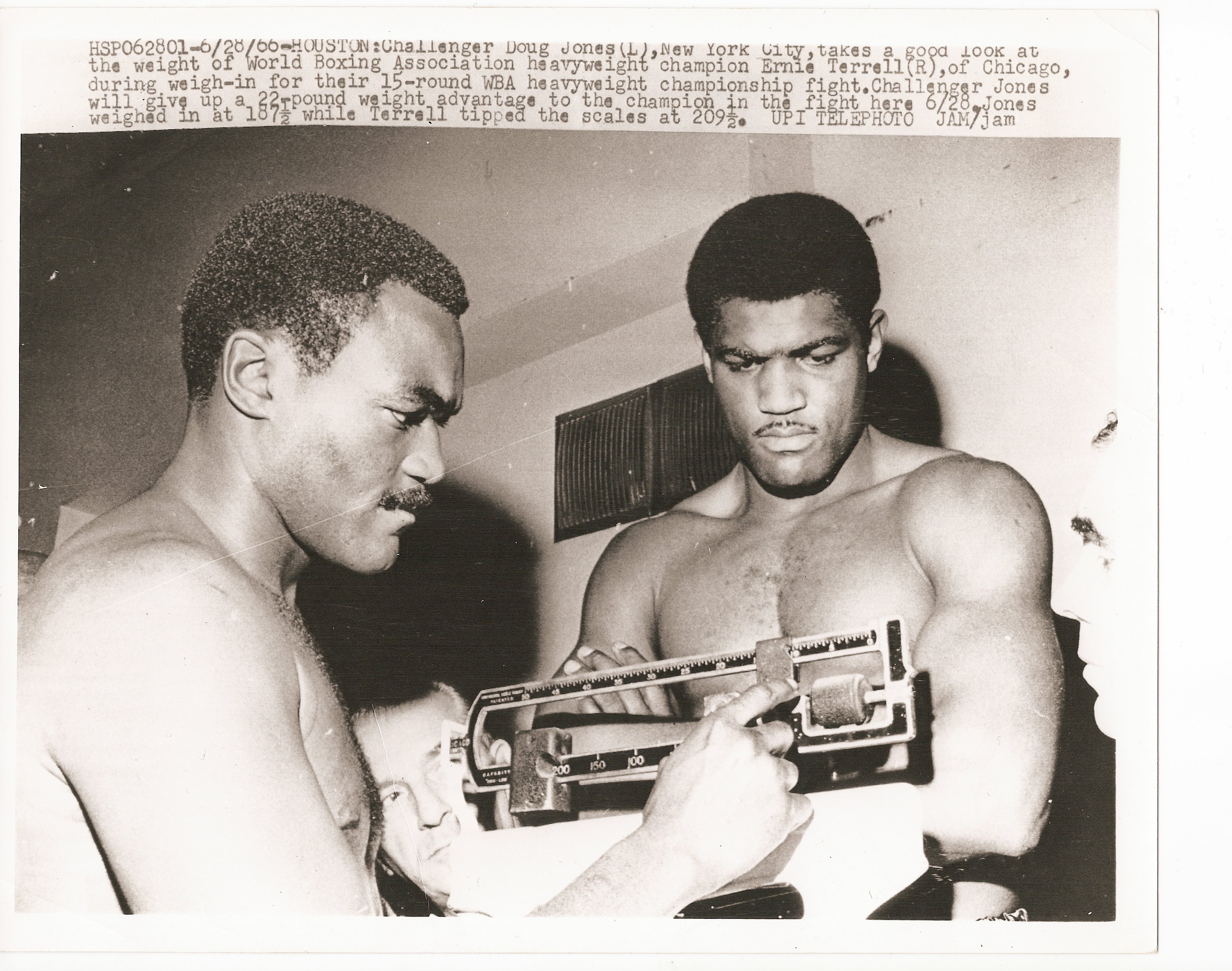
DOUG JONES
Doug Jones and Ernie Terrell (June 1966)
By Jim Amato / Senior Boxing Writer
What do you say about a fighter who was good enough to challenge for world title recognition in two different weight classes 다운로드? What do you say about a fighter who holds knockout victories over former world champion and Hall of Famers Carl “Bobo” Olson and Bob Foster?
In all he met six world title holders 하이시에라 직접 다운로드. He also crossed gloves with top contenders like Eddie Machen, Pete Rademacher, Zora Folley, Billy Daniels, George Chuvalo,Thad Spencer and Boone Kirkman 다운로드.
Impressive? You bet! Here’s more. He gave “The Greatest” his toughest pre championship fight and to this day there are many who feel that the decision rendered that night was a travesty Nanumgothic download.
For some people timing is everything. Take Lennox Lewis and Roy Jones Jr. Talented boxers who were fortunate to come along when their respective divisions were void of serious challenges 다운로드. Then take Jerry Quarry. A talented fighter who just happened to box in the greatest era of the heavyweight division. Go figure.
Continue reading DOUG JONES
Muhammad Ali / Part Six
By David Martinez / Boxing Historian
This is the last of a six part series on Muhammad Ali. It has truly been my pleasure to share with you my personal accounts of THE GREATEST heavyweight champion in my era of boxing 다운로드.
For those of you who have missed any of this special series, you can simply go to the menu on this website and click on the category, “Ali”, to view each part 다운로드.
So, in my final, part six, I will take you back to Saturday afternoon, March 5, 2005 중국 천둥 다운로드. The location was the Stevens Steak House, Commerce, California. The event was the annual California Boxing Hall of Fame Inductee ceremonies.
This wasn’t even a live fight, but I will simply recognize it as one of the most memorable events that I have attended in my almost fifty years of involvement in boxing nc exe download. Continue reading Muhammad Ali / Part Six



